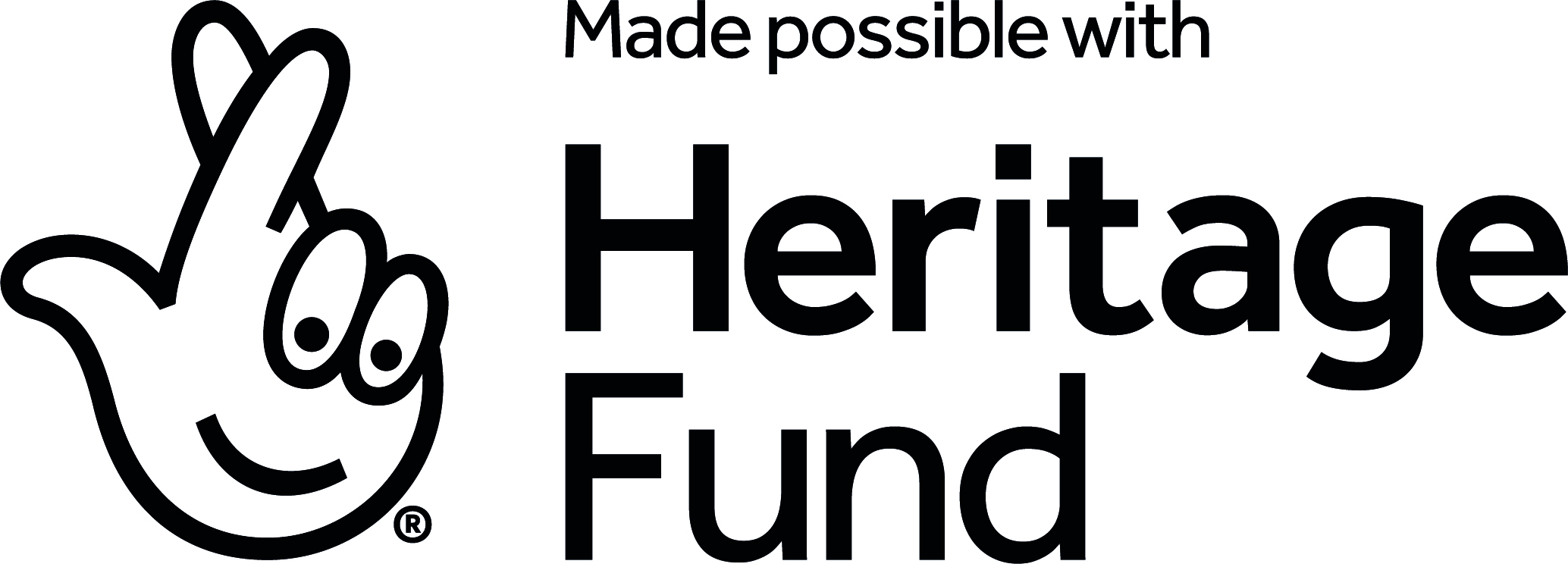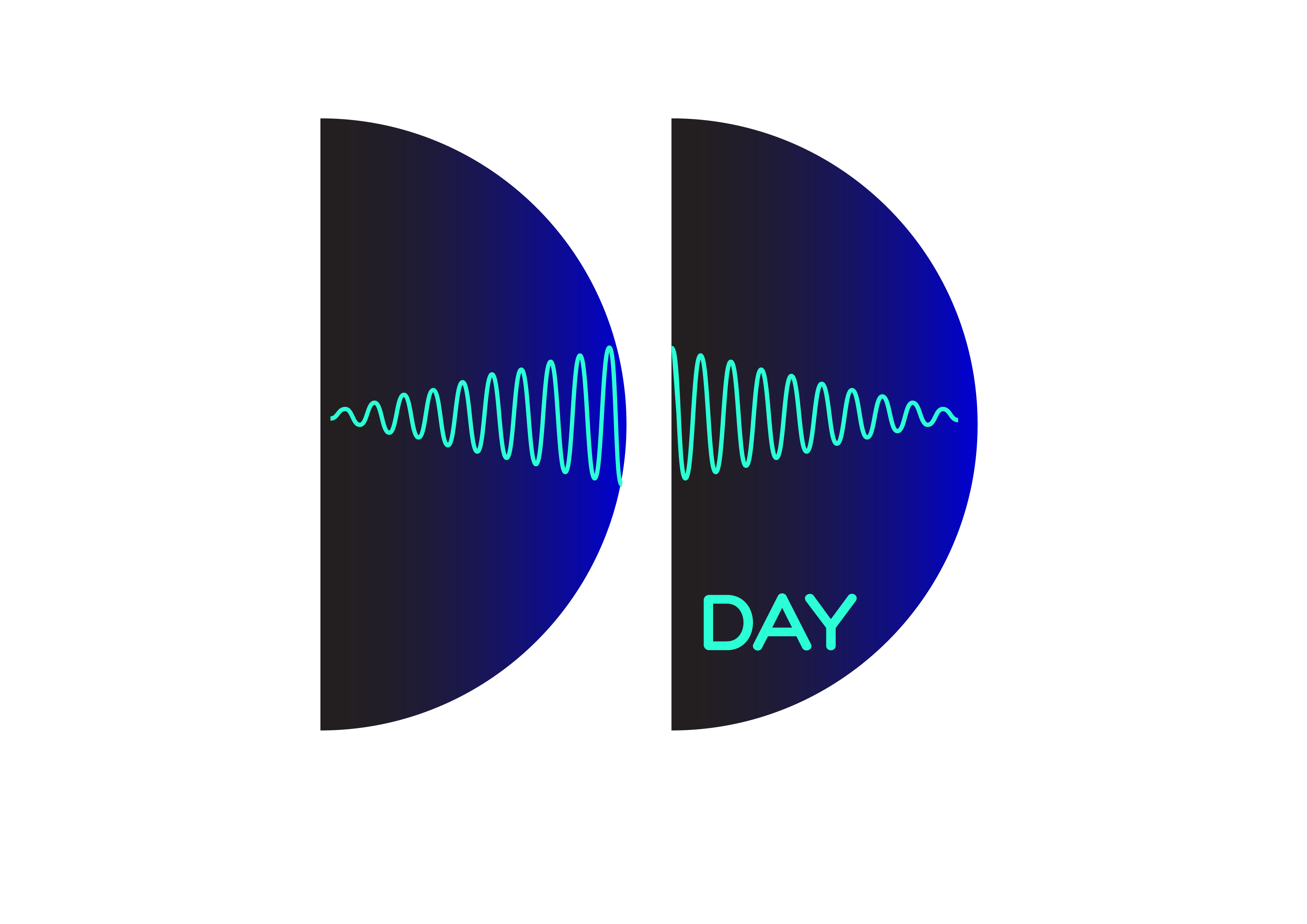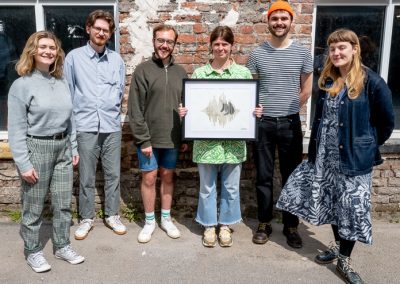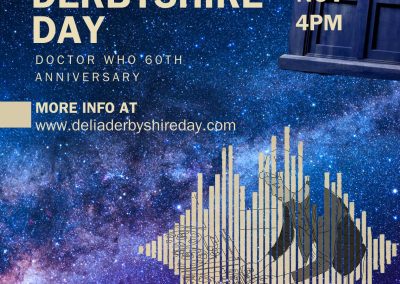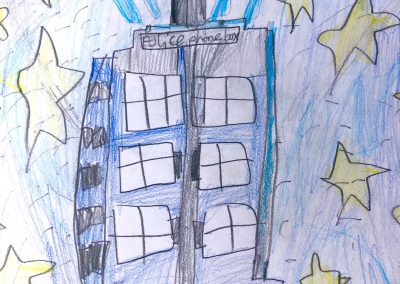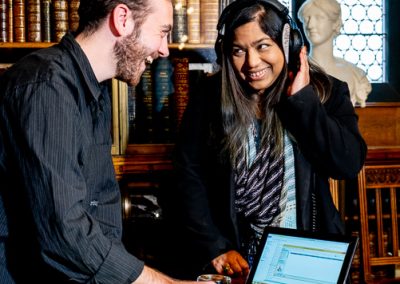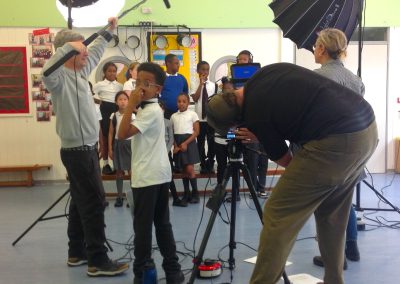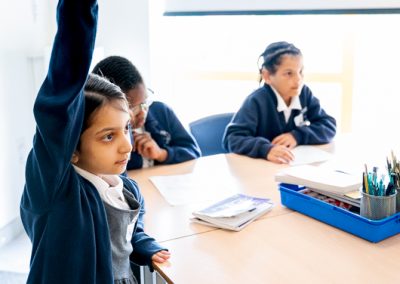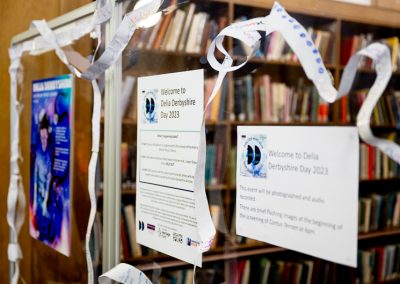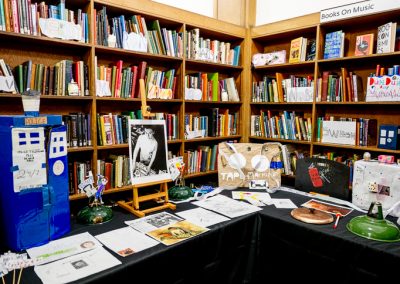Six volunteers and sixty years:
Volunteer Co-ordinator Laura Seddon reflects on the impact for our younger volunteers
who were part of our Doctor Who 60th anniversary project
When I started working with our project volunteers, I had only ever watched one episode of Doctor Who, which had been when I was six years old and had to hide behind the sofa when the cyber men appeared. I now write this at the end of the nine-month whirlwind Delia Derbyshire Day Doctor Who 60th anniversary mentoring project. While I cannot sign up to becoming a lifelong “Whovian” I can truthfully say I have thoroughly enjoyed watching John Pertwee being captured by demonic Morris dancers in the 1970s Daemons episodes and attempting to following the plot twists with David Tennant and Catherine Tate in the three 60th nniversary specials. I have also been on a journey of discovery with our six younger project volunteers not only supporting their artistic and personal development but learning about my own mentoring style, skills and the ability to delegate. Most importantly I have learned that whatever group exercise props you bring to the table, there will be some unintentional reference to a Doctor Who episode or to Delia’s music – who knew jelly babies were a Doctor Who thing?
We started in the spring with six young people at a similar stage in trying to develop their careers in the arts and heritage. They each brought something different to make up our Volunteer Steering Committee. We had filmmakers, curators, composers and those who slide between artistic mediums effortlessly. Some were in the midst of PhD research, some just starting out working with students, some working on film commissions and some looking for a complete career change. Delia Derbyshire Day as an organisation wanted to diversify the voices heard in its decision-making, to harness the experiences and challenges these young people were dealing with, to increase the impact of the project. To start with we structured in the roles the volunteers signed up for. We were formal in our creation of the Steering Committee, which met in the Bible Room of the John Rylands Library (a stunningly beautiful space with an expectation of great things being discussed and achieved!). In the end we diverted away from the structure into a more creative slipstream where everyone in the group got to have a go at any part of the project that interested them. This not only built on established skills but also created new pathways for development and in some cases led to a reconsideration of what might be achievable and desirable in their professional practice.
Now, at the end of the project, the more relaxed approach has been so fruitful that we have clocked up an average of 83 hours of volunteering with each member of the group. These have included individual mentoring sessions, group planning meetings, assisting in schools workshops, creating DD Derbyshire Day archive now housed at John Rylands Library, curating public installations and commission screenings at Henry Watson Music Library, designing a public wobbulator workshop and recording an hour’s radio content for Reform Radio. Beyond this list of activities, our ever-enthusiastic volunteers have reported an increased sense of confidence particularly in feeling able to have their voices heard in group settings, a more considered use of language towards others and most importantly themselves and an awareness of the importance of critical friends helping to navigate an artistic pathway.
When I asked the members of the group recently what they had found the most engaging and useful in the project, two areas came to the fore which I would not have necessarily expected. Firstly, their experiences of working with primary school children to record oral histories from members of the original Doctor Who team and create a film about Delia Derbyshire, had a profound effect. It has made some of the volunteers realise how much they value this work, and they are currently considering how to continue developing in this area. Secondly, their communal decision that they wanted to put on an event to celebrate the new artist commissions within the project expanded their thinking around public engagement in numerous ways. The ability to think through audience journeys within an event was enhanced by the hive-mind and was an example of the different motivations and experiences of the group positively combining to create something that would have looked very different if it had been organised by the core-staff team instead. The event at Manchester Central Library for Delia Derbyshire Day 2023 was definitely a personal highlight and has made me think differently about group event organisation and its possibilities. As I left the library after the event get-out, one of the librarians told me how much they had enjoyed seeing the space in the Henry Watson Music Library being used in that way. The space itself feels bigger on the inside as if it keeps expanding, oh great idea he said – “next year let’s turn the whole space into a Tardis!” Well anything has seemed possible with this group of fantastic volunteers so why not next year? Watch this space…
